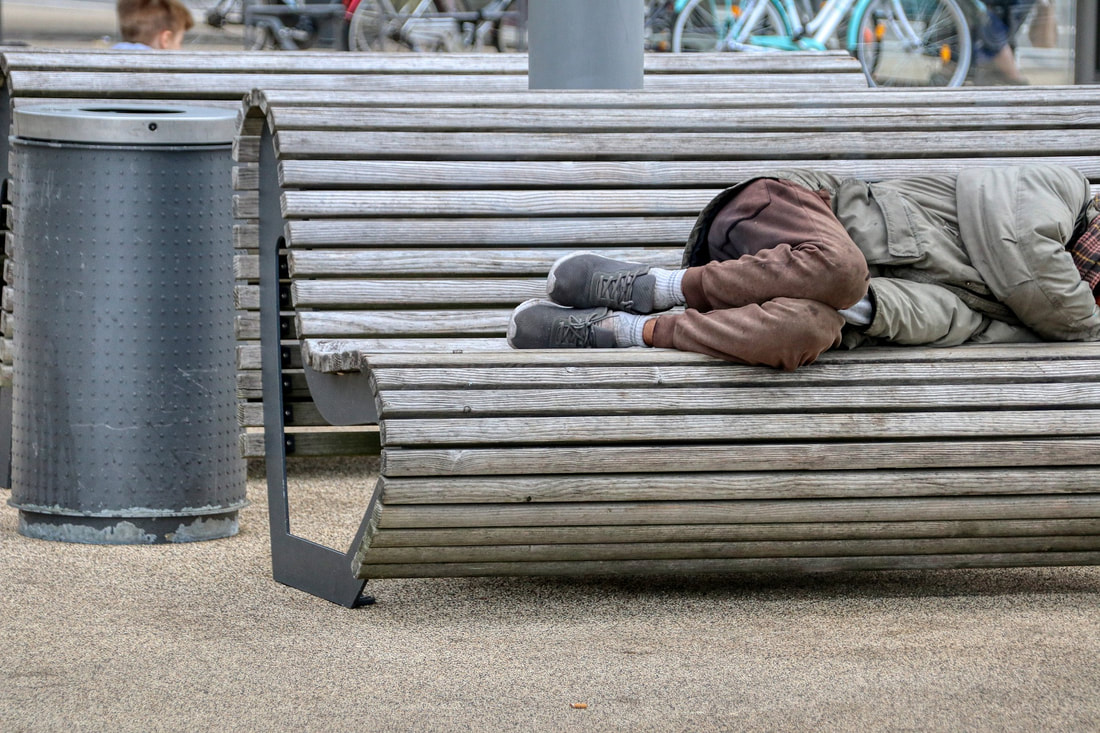Homelessness has been a longstanding crisis in Los Angeles, with the city experiencing a significant increase in the number of people living on the streets in recent years. While there are various agencies and organizations working towards addressing the issue, the role of faith communities in supporting these efforts cannot be overstated.
One of the key ways in which faith communities have supported agencies and organizations in addressing homelessness is through the provision of services such as food, shelter, and medical care. According to a report by the Los Angeles Homeless Services Authority (LAHSA), there were over 66,400 homeless people in Los Angeles County in 2020, and many of them rely on faith-based organizations for basic needs.
The report highlights the role of faith-based organizations in providing shelter to the homeless population, stating that "faith-based organizations have played a significant role in providing emergency shelter for individuals and families experiencing homelessness in Los Angeles County." For example, the Union Rescue Mission, which is a faith-based organization, provides shelter to over 1,000 homeless people every night.
Faith communities also play a critical role in addressing the mental health needs of the homeless population. According to a report by the National Alliance to End Homelessness, "faith-based organizations often provide counseling, mental health services, and support groups to those experiencing homelessness." These services are essential, as homelessness can often lead to mental health issues such as depression, anxiety, and PTSD.
Furthermore, faith communities have been instrumental in advocating for policies that support homeless individuals and families. The Interfaith Coalition to End Homelessness, which is made up of faith-based organizations, has been working towards ending homelessness in Los Angeles since 2003. The coalition has been involved in advocating for the construction of affordable housing units and for the expansion of mental health services for the homeless population.
In a statement, Rabbi Noah Farkas, a member of the Interfaith Coalition to End Homelessness, said, "we believe that homelessness is a moral issue, and that it is our responsibility as people of faith to ensure that everyone has a safe and stable place to call home."
Faith communities play a critical role in supporting agencies and organizations in addressing homelessness in Los Angeles. They provide essential services such as food, shelter, and medical care, as well as mental health services and advocacy for policies that support homeless individuals and families. It is essential that faith communities continue to play an active role in addressing homelessness and working towards ending the crisis in Los Angeles.
The Westside Coalition has an active faith group that focuses on educating the community about resources for people who are struggling. The group also participates in the Santa Monica Area Interfaith Council, which focuses on issues of social justice. Those interested in being added to their email group can email [email protected].
Sources:
Los Angeles Homeless Services Authority (LAHSA) Annual Homeless Count 2020 Report: https://www.lahsa.org/documents?id=4968-2020-greater-los-angeles-homeless-count-presentation.pdf
National Alliance to End Homelessness: Faith-Based Organizations: https://endhomelessness.org/resource/faith-based-organizations/
Interfaith Coalition to End Homelessness: https://interfaithhomelessnesscoalition.org/
One of the key ways in which faith communities have supported agencies and organizations in addressing homelessness is through the provision of services such as food, shelter, and medical care. According to a report by the Los Angeles Homeless Services Authority (LAHSA), there were over 66,400 homeless people in Los Angeles County in 2020, and many of them rely on faith-based organizations for basic needs.
The report highlights the role of faith-based organizations in providing shelter to the homeless population, stating that "faith-based organizations have played a significant role in providing emergency shelter for individuals and families experiencing homelessness in Los Angeles County." For example, the Union Rescue Mission, which is a faith-based organization, provides shelter to over 1,000 homeless people every night.
Faith communities also play a critical role in addressing the mental health needs of the homeless population. According to a report by the National Alliance to End Homelessness, "faith-based organizations often provide counseling, mental health services, and support groups to those experiencing homelessness." These services are essential, as homelessness can often lead to mental health issues such as depression, anxiety, and PTSD.
Furthermore, faith communities have been instrumental in advocating for policies that support homeless individuals and families. The Interfaith Coalition to End Homelessness, which is made up of faith-based organizations, has been working towards ending homelessness in Los Angeles since 2003. The coalition has been involved in advocating for the construction of affordable housing units and for the expansion of mental health services for the homeless population.
In a statement, Rabbi Noah Farkas, a member of the Interfaith Coalition to End Homelessness, said, "we believe that homelessness is a moral issue, and that it is our responsibility as people of faith to ensure that everyone has a safe and stable place to call home."
Faith communities play a critical role in supporting agencies and organizations in addressing homelessness in Los Angeles. They provide essential services such as food, shelter, and medical care, as well as mental health services and advocacy for policies that support homeless individuals and families. It is essential that faith communities continue to play an active role in addressing homelessness and working towards ending the crisis in Los Angeles.
The Westside Coalition has an active faith group that focuses on educating the community about resources for people who are struggling. The group also participates in the Santa Monica Area Interfaith Council, which focuses on issues of social justice. Those interested in being added to their email group can email [email protected].
Sources:
Los Angeles Homeless Services Authority (LAHSA) Annual Homeless Count 2020 Report: https://www.lahsa.org/documents?id=4968-2020-greater-los-angeles-homeless-count-presentation.pdf
National Alliance to End Homelessness: Faith-Based Organizations: https://endhomelessness.org/resource/faith-based-organizations/
Interfaith Coalition to End Homelessness: https://interfaithhomelessnesscoalition.org/

